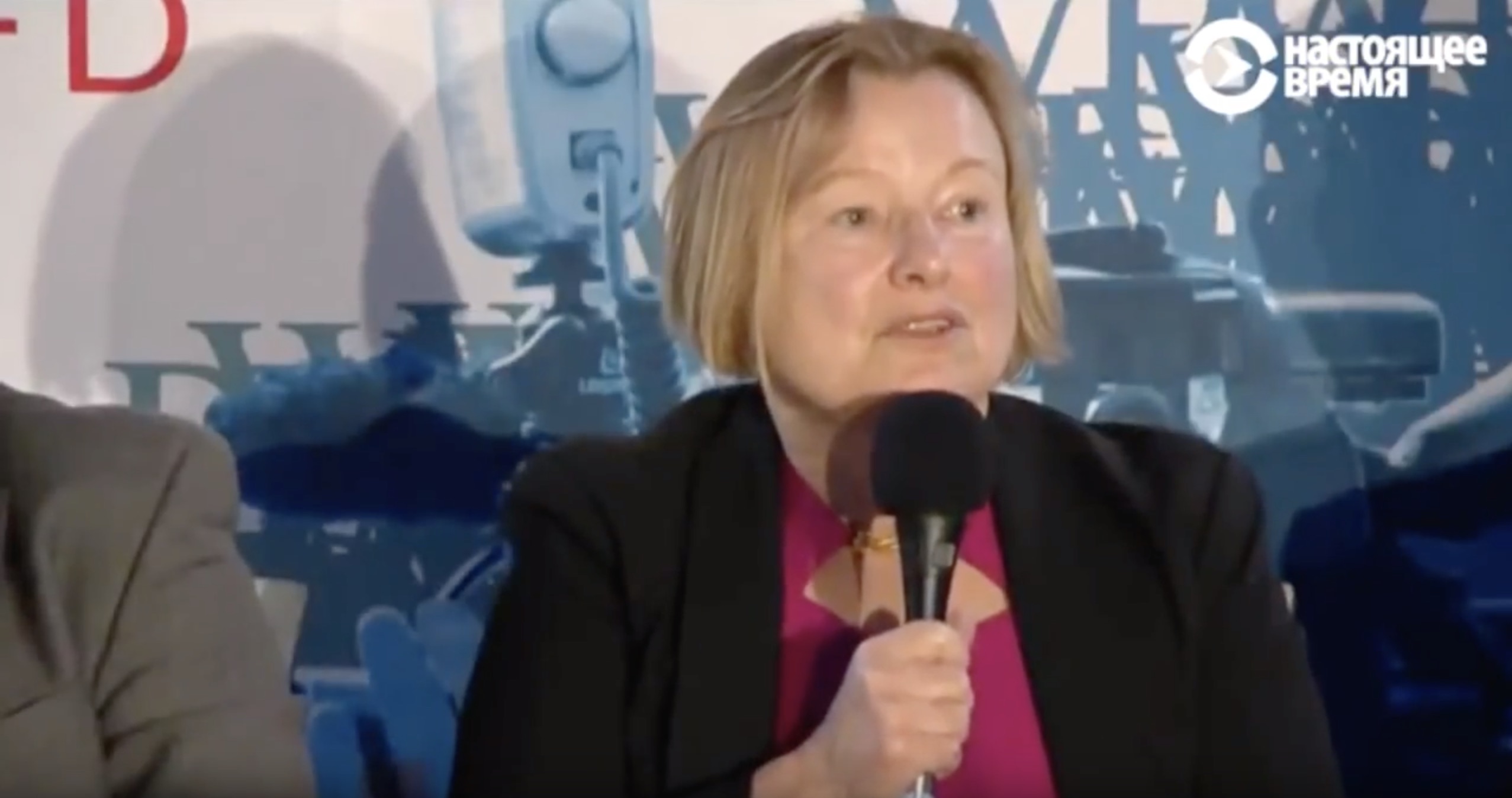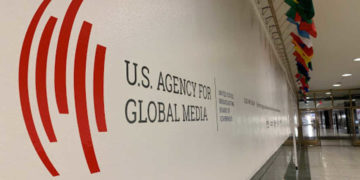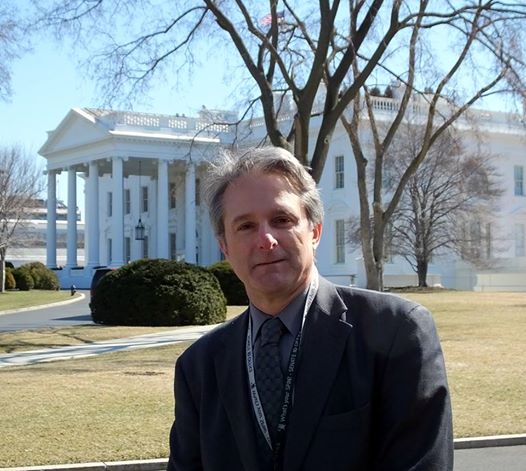Voice of America (VOA) Director Amanda Bennett on Wednesday, April 25, 2018, denied there was pressure from the Chinese government on VOA to cancel or shorten the live Guo Wengui interview on April 19, 2017. Bennett made the public denial at a panel discussion to mark the 2018 World Press Freedom Day. Her denial runs contrary to multiple media reports and accounts from VOA journalists and even some VOA managers who said that the Chinese government used heavy-handed pressure against VOA. Bennett’s denial came during the Q & A portion toward the end of the panel. Mr. Zhao Yan, former New York Times Beijing Bureau employee, Chinese journalist and political commentator who spent three years as a political prisoner in China, took the floor and asked Bennett to explain why VOA management cut the Guo interview to one hour and eighteen minutes despite its commitment that the interview would be broadcast live for three hours on TV and social media platforms. He also asked why the BBG intends to fire three Mandarin journalists who were involved in the interview.
Bennett answered:
I want to point out that there was no Chinese government pressure, there was no US government pressure. All the decisions made inside the Voices of America were made in the service of high journalistic integrity. And unfortunately I am sorry we can’t tell you anything because of privacy and labor issues, and we cannot tell you the reasons why things are happening, but I’d like to assure you that….first of all, talking about censorship, you just mentioned something that’s very important–an hour and 18 minutes. The Guo Wengui interview appeared on Voice of America for an hour and 18 minutes. Every decision that was made regarding that –every management decision that was made regarding that interview was made in the service of journalistic integrity.
Amanda Bennett’s claim that “there was no pressure from the China government” flabbergasted many VOA Mandarin Service staffers. A few hours after the interview was unplugged, VOA issued a public statement, saying that the cut-off incident was due to “miscommunication”.
However, on May 1, 2017 the federal agency in charge of the Voice of America, the Broadcasting Board of Governors (BBG) put five Mandarin journalists, who are longtime federal employees, on administrative leave pending the results of an administrative investigation. Last November, the director of VOA East Asia and Pacific Division proposed to fire three journalists.
A public outcry erupted after the curtailment of the interview and two public demonstrations were held in front of the VOA building, condemning what the protesters and other critics, including many social media users in China, said was VOA management’s cave-in to Chinese government pressure and an example of censorship. On August 28, 2017, four members of the U.S. Congress who serve on committees in the U.S. Senate and U.S. House of Representatives which oversee the operations of the BBG and the VOA sent a written request to Inspector General Steve A. Linick in the Office of Inspector General (OIG) for the U.S. Department of State & Broadcasting Board of Governors to conduct an investigation into whether Chinese government intimidation or interference influenced VOA management’s decisions to curtail the Guo interview.
“If, in fact, Chinese diplomatic pressure resulted in a shortened or otherwise modified interview at VOA’s Mandarin Service, it is vitally important that the American public know this given that the VOA is funded by taxpayers with the express mission of ‘telling audiences the truth’,” the members of Congress wrote to the Inspector General.
U.S. lawmakers noted allegations that shortly before the live interview with Guo Wengui was to be broadcast by the VOA Mandarin Service, “the Chinese government went to extraordinary lengths to stop the broadcast, including threatening the visas of VOA reporters in Beijing and multiple demands by the Chinese Embassy in Washington to cancel the interview.”
Senator Marco Rubio, Rep. Edward Royce, Rep. Chris Smith and Rep. Robert Pittenger wrote: “We cannot allow pressure from China to dictate VOA’s ability to broadcast the truth into China.”
Mr. Qiao Mu, a dissident Chinese academic, previously a professor at the Peking University and a contract employee at VOA Mandarin Service from November 2017 to January 2018, challenged Bennett during the Q & A session on whether there is press freedom at VOA. When he was working in the Mandarin Service, he said, two managers asked him to stop tweeting on certain topics which he believed had nothing to do with his work. In January, he said, his contract was terminated because in one of his tweets he showed sympathy for the Mandarin journalists who were put on administrative leave in one of his tweets.









